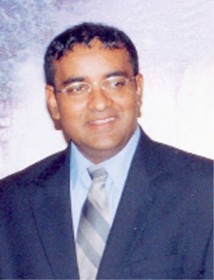President Bharrat Jagdeo has challenged world leaders to reach a climate change deal in his address last week at the 64th session of the UN General Assembly at UN Headquarters in New York.

“We need to move beyond simply understanding the challenge. We need to work as a global community to shape a solution that is in all our interests,” Jagdeo is quoted by GINA as saying.
Noting that the vision exhibited by the United Nations (UN) Secretary General, Ban Ki-moon, and the work of leaders and citizens from countries across the world had led to a level of understanding of the nature of the climate challenge, President Jagdeo urged his fellow leaders to turn these building blocks into an agreement that could start to reduce global greenhouse gas emissions.
“In doing so, we should be guided by science and by the need for solutions that treat all countries fairly. But we also need to recognize that the challenge now is as much about political will as it is about scientific, economic or institutional considerations.”
Jagdeo contended that there was need to recognize that all countries, developed and developing, had concerns about the commitment of others to such a long-term partnership, GINA reported.
Developing countries questioned whether the international community would commit to the scale of financial transfers that were needed, while others were worried that acting on climate change now would stymie their national development, precisely at the time when many were poised for historical levels of economic growth and social advances.
On the other hand, Jagdeo argued, many developed countries were worried that the financial transfers required would be an excessive burden on their budgets during extremely challenging economic times. There were also fears from individual countries that they would be expected to carry a greater burden than other developed nations.
“These political concerns could be a recipe for a stalemate that the world cannot afford. Failure to overcome them now will mean misery for future generations, and the eventual costs of tackling climate change will be even greater than they are now,” Jagdeo warned.
In that light, Jagdeo said that he welcomed the proposals laid out by the United Kingdom, and subsequently supported by the European Union, to generate funding of about US$100B per annum to address climate change in the developing world. This, he said, was a proposal that started to square up to the magnitude of funding that was required.
“What matters now is that we see it move from proposal to action, in a way that is fully additional to existing aid contributions from the developed world. We also need to learn from our experiences of the aid agenda – if we are to combat climate change, developing countries must not be seen as passive recipients of aid, but as equal partners in the search for climate solutions. If this happens, it can start to send the signal that the developed world is serious about solving the problem of climate change,” Jagdeo asserted.
Deforestation and forest degradation
The Guyanese head-of-state underscored that it was urgent that ways be found to work together to address the 17% of greenhouse gas emissions that resulted from tropical deforestation and forest degradation globally.
He observed that as with climate change generally, the world had a large degree of clarity around the nature of this specific problem.
“We know that it causes more emissions than the entire European Union, and we know that this is because the world economy makes trees worth more dead than alive. We also know that the only sustainable way to address the problem is national-scale action in forest countries coupled with international incentives that place a value on trees to make them worth more alive than dead,” he stated.
Jagdeo also informed the UN Assembly that Guyana was ready to play its part and had launched the Low Carbon Development Strategy (LCDS) which set out how the country’s vast tropical rainforests could be placed under long-term protection to not only provide the world with badly needed climate services, but also to move Guyana’s economy onto a long-term sustainable low carbon development path, where jobs were created across the country in sectors that did not threaten the forests.
“Thanks to the visionary leadership of the Prime Minister of Norway (Jens Stoltenberg), our two countries are also working together to provide a functioning model of how low deforestation and low carbon economies can be created in countries such as ours,” the President stated.
And Guyana also continued to play its part in the United Nations Framework Convention on Climate Change (UNFCCC) process, he told his fellow leaders, which must provide the long-term framework for combating forest-based emissions through the Reduced Emissions from Deforestation and Degradation mechanism, or REDD+.
The world could quickly move, he said, to slow down deforestation starting now, not in 2013.
“Guyana was pleased to participate in the April G-20 side meeting that addressed how this can happen. We support the proposals from the Informal Working Group on Interim Financing for REDD report, which was set up after the G20 side meeting, that lays out how the world can achieve a 25% reduction in global deforestation rates by 2015 with an investment of less than €25B in total,” Jagdeo said.
Using highly conservative estimates of forest carbon, this could lead to seven gigatons of greenhouse gas emissions being avoided between now and 2015, which would be the single biggest contribution to averting climate catastrophe over this period.
“And it can be done – rainforest countries representing the vast majority of the world’s tropical forests worked with the informal working group, and are willing to act. The question now is will the developed world understand the enormous potential this offers our world, and will they act to generate the finances that are needed,” the President challenged.




